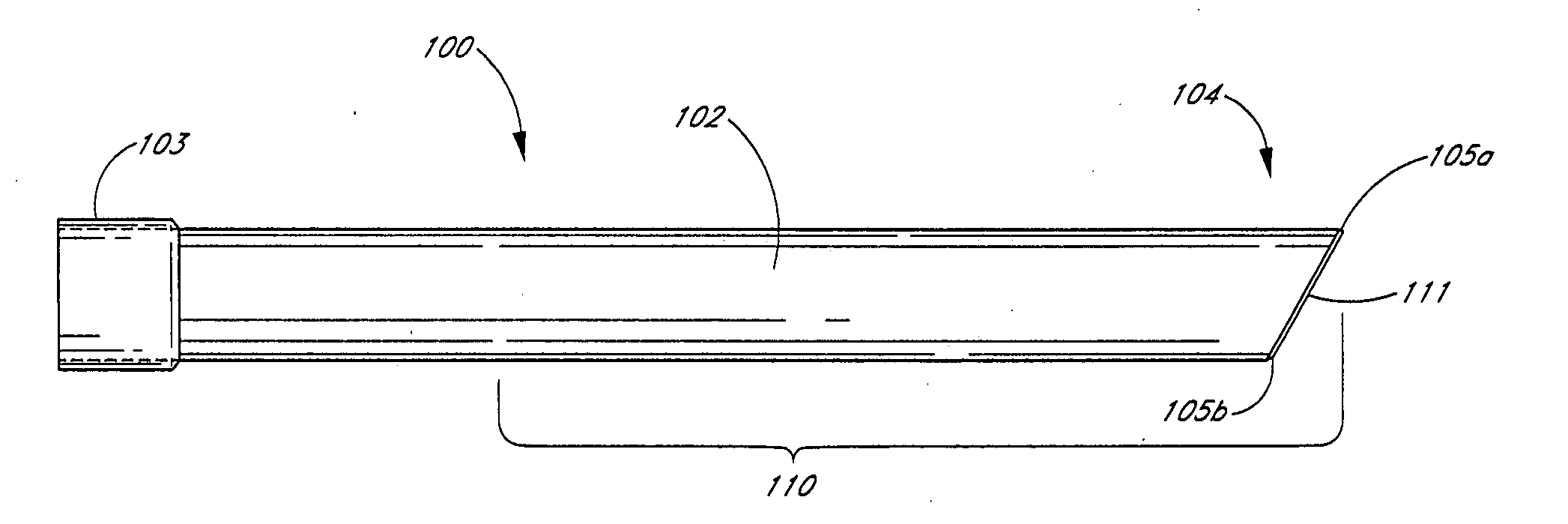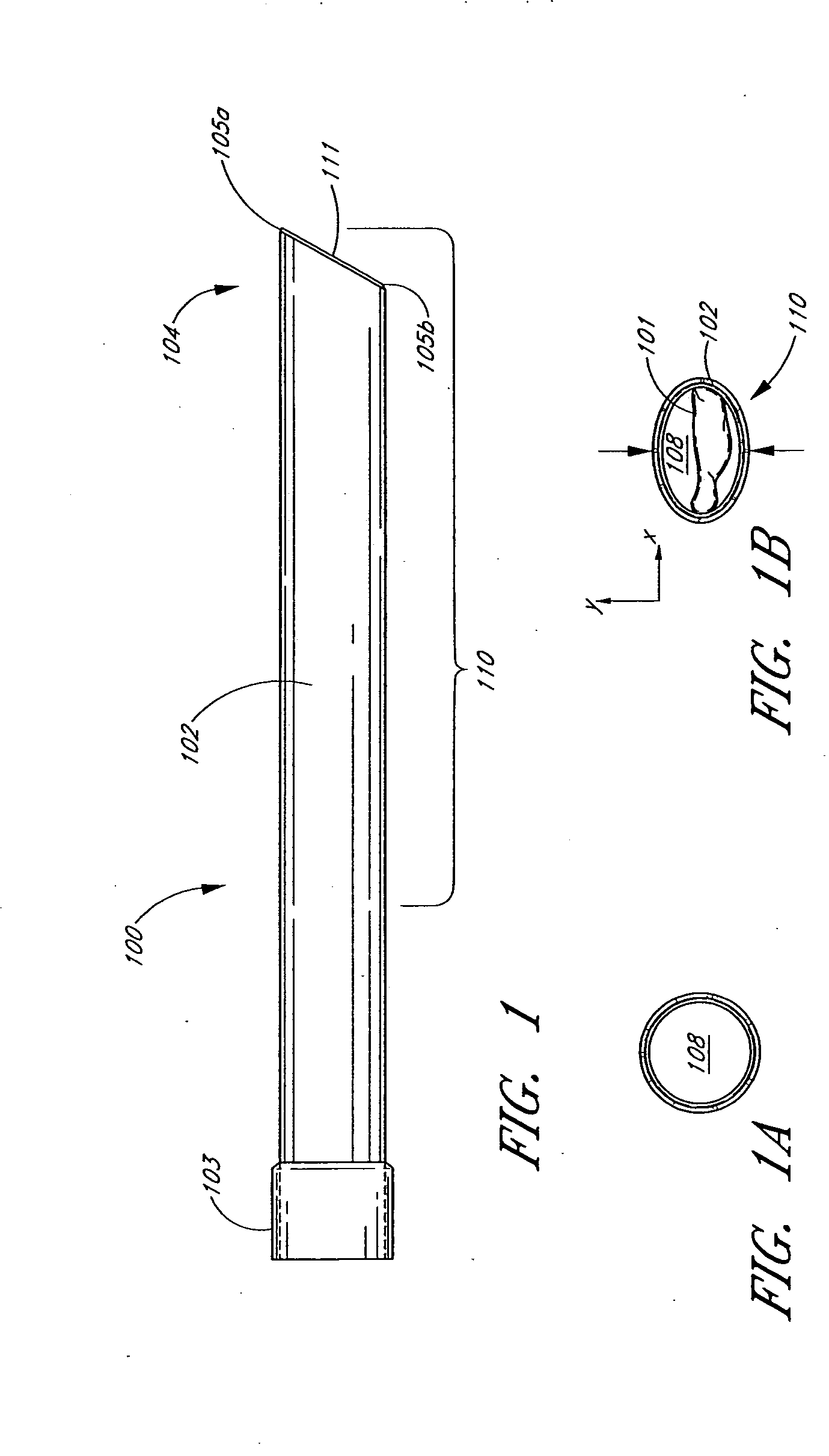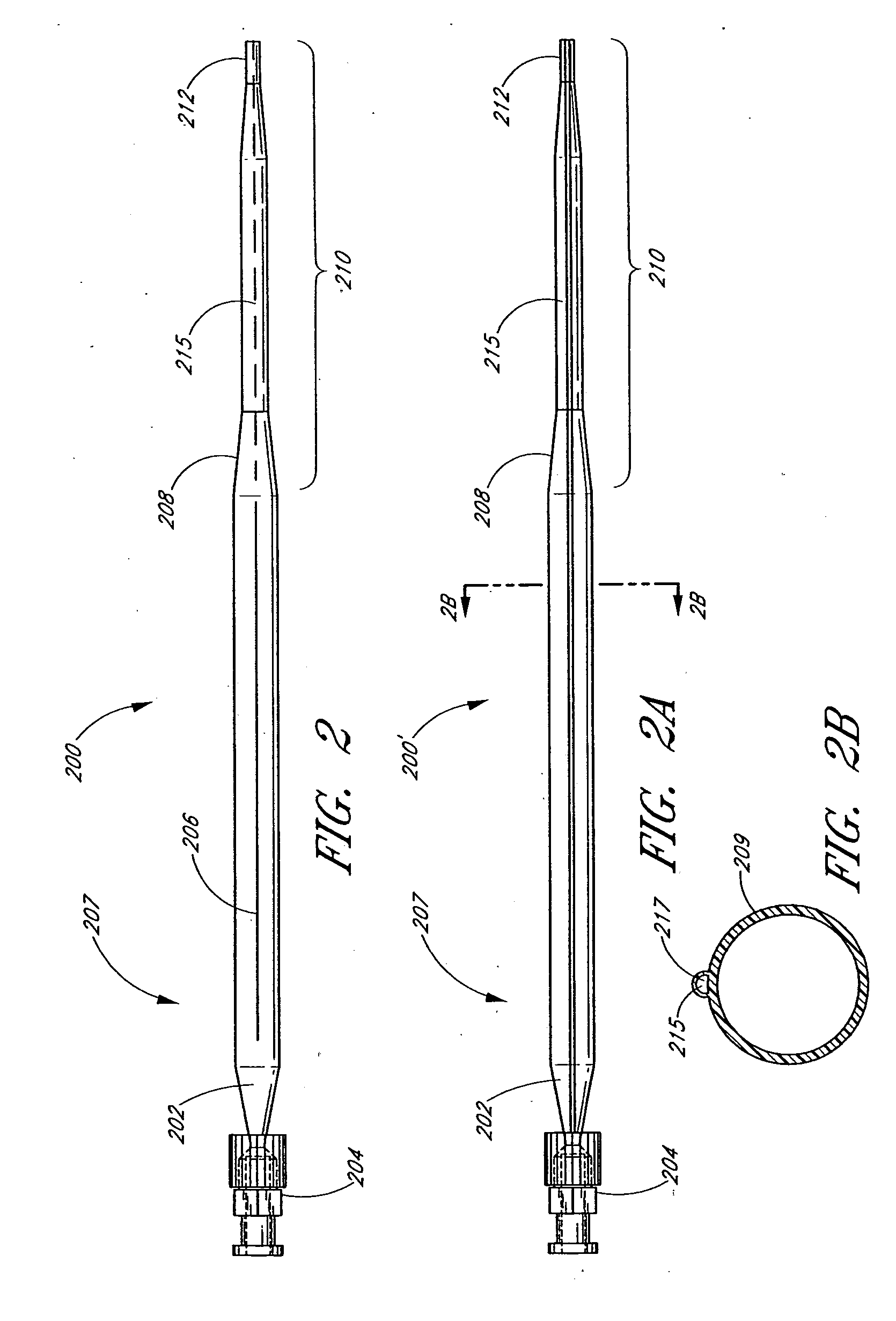Expandable percutaneous sheath
a percutaneous sheath and expandable technology, applied in the field of medical devices, can solve the problems of requiring a large number of steps, affecting the effect of the patient's hearing, and the placement of the rigid sheath still involves angular shearing forces and several steps, and achieves the effect of minimal invasiveness
- Summary
- Abstract
- Description
- Claims
- Application Information
AI Technical Summary
Benefits of technology
Problems solved by technology
Method used
Image
Examples
Embodiment Construction
[0056]FIG. 1 is an overview of an exemplary embodiment of a percutaneous access sheath 100. The sheath 100 generally comprises an elongate tubular body 102 with an axial lumen 108 (FIG. 1A), and is designed to provide percutaneous access to a site in the body for the purpose of diagnosis or treatment.
[0057] In the exemplary embodiment, the elongate tubular body 102 has a distal section 110 and a proximal section 103. As shown in FIG. 1, the proximal section 103 may have a slightly larger inner and outer diameter as compared to the distal section 110. As will be explained in more detail below, the proximal section 103 may be used to secure the access sheath 100 to a connector. With continued reference to FIG. 1, the distal end 104 of the distal section 110 may be provided with a beveled distal face 11, which preferably forms an angle of about 45 to about 75 degrees with respect a longitudinal axis of the tubular body 102. In this manner, the distal face 111 forms a leading edge 105a...
PUM
 Login to View More
Login to View More Abstract
Description
Claims
Application Information
 Login to View More
Login to View More - R&D
- Intellectual Property
- Life Sciences
- Materials
- Tech Scout
- Unparalleled Data Quality
- Higher Quality Content
- 60% Fewer Hallucinations
Browse by: Latest US Patents, China's latest patents, Technical Efficacy Thesaurus, Application Domain, Technology Topic, Popular Technical Reports.
© 2025 PatSnap. All rights reserved.Legal|Privacy policy|Modern Slavery Act Transparency Statement|Sitemap|About US| Contact US: help@patsnap.com



